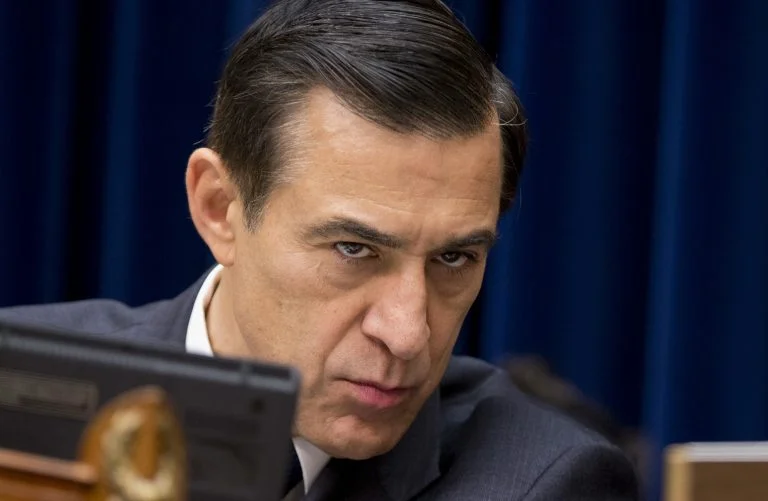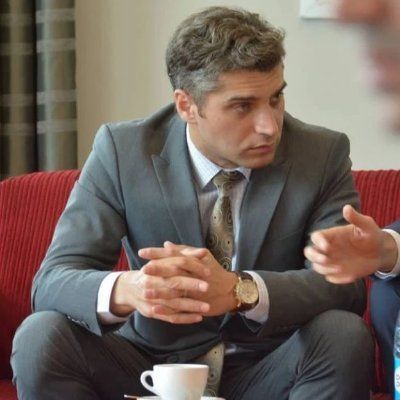Congress, ANCA, and fragile peace in South Caucasus [Op-Ed]
![Congress, ANCA, and fragile peace in South Caucasus [Op-Ed]](https://www.azernews.az/media/2025/10/15/23462482428.png)
In the very sensitive geopolitical situation in the South Caucasus, the United States Congress is once more being asked to play a role, but this time in a manner that threatens to undermine fragile peace progress rather than reinforce it. The Armenian National Committee of America (ANCA) and pro-Armenian congressional factions have vociferously opposed H.R. 5632, the so-called Peace Act introduced by Rep. Darrell Issa.

Their criticisms highlight, among other things, the bill’s failure to address Armenian "hostages, displaced persons" from so-called Artsakh (Garabagh - Azerbaijan’s internationally recognised territory), the preservation of Armenian Christian heritage, and the “occupation” of Armenian sovereign territory. Within their narrative, H.R. 5632 is insufficiently ambitious and dangerously blind to ongoing injustices.
Yet, from the vantage of a realist engaged in diplomacy, a deeper question looms: To what extent will Congress persist in pretending not to hear the President’s comprehensive peace initiative, and continue to enact measures that may actively harm the delicate reconciliation process between Azerbaijan and Armenia? In the most extreme reading, this posture risks co-opting US foreign policy in favour of one side’s maximalist claims, at the expense of regional security, trust, and eventual closure.
At the crux of the contest, the arguments advanced by ANCA stir risks of congressional overreach, and the uneasy balance between advocacy and diplomacy in a region still trying to heal.
At the heart of ANCA’s objection is the claim that H.R. 5632 fails to hold Azerbaijan fully accountable for what they label as enduring “crimes,” such as “illegal detention and mistreatment of Armenian prisoners, mass destruction of Armenian Christian heritage, forced displacement of Armenians from Artsakh, and the continuing presence of Azerbaijani forces on what they consider Armenian sovereign land.”
Now, let us be specific to ANCA’s critique, in which it loses its core sense, making the diaspora’s activity quite biased and disconnected from the ongoing processes. ANCA acts as though it is deaf and blind to the current diplomatic affairs that are in good shape. But one should not forget that when the Armenian diaspora had turned all international views, and especially the Congress, against Azerbaijan, they were not as dissatisfied as they are now. So, it seems that objective analysis and open-minded discussion do not serve the interests of the organisation’s smear campaigns. Once sheltered under the shadow of the Biden administration, the Armenian National Committee of America (ANCA) had long managed to influence members of Congress with its one-sided narratives to the point where it began to believe its own distortions. Although Garabagh was fully liberated two years ago and is internationally recognised as part of Azerbaijan, for ANCA, nothing seems to have changed.
Their insistence on using self-styled names for Garabagh interests no one; after all, toponyms can differ across languages, but framing another country’s sovereign territory as “disputed” is a clear violation of international law. Such audacity and political arrogance have only grown over time, inflating the organisation’s sense of importance and even leading it to challenge the decisions of the White House. One can be certain that none of this escapes the attention of the US State Department.
A reasonable suggestion for ANCA would be to observe the ongoing proceedings at the Baku Military Court, where war crimes trials are being conducted according to international legal standards. Perhaps witnessing how due process functions in the prosecution of war criminals would offer them a lesson in justice and accountability, concepts they seem to misunderstand when it comes to the South Caucasus. If we are being frank, one could speak at far greater length about the Armenian genocide, the killings, and even the systematic destruction and atrocities committed against religious, historical, and cultural monuments, let alone making baseless accusations about Azerbaijan.
Still, ANCA’s actions are not entirely incomprehensible. Whether right or wrong, as a diaspora lobbying group, it is naturally inclined to defend Armenian interests. That is politics. I would even say they reap what they have sown decades ago. This is not the comparison of cases but rather a reminder of how ignoring four UN resolutions bears its fruits. It is also a rather striking fact that a community, which has itself violated human rights, occupied foreign territory, and consistently ignored UN resolutions, dares to speak of objectivity when it comes to human rights.
But what about the US Congress?
After all, Americans and nations beyond remember well the numerous corruption and financial mismanagement scandals that have emerged from Capitol Hill in the past. How long can lawmakers allow themselves to be manipulated by lobby organisations and diaspora groups offering political favours or worse, monetary incentives, in exchange for influence?
So I pose this pointed question to Congress (and
specifically to pro-Armenian lawmakers):
If you persist in acting as though you are deaf to the
President’s carefully calibrated strategy, pushing measures that
privilege one narrative, exclude essential compromises, and
heighten the risk of backlash, how far are you prepared to go? Will
you continue to treat diplomacy as an adversarial theatre in which
one side must be punished, rather than as the delicate art of
bringing rivals gradually into coexistence?
In the end, true stability in the South Caucasus will require courage not only to demand justice, but also to accept uncomfortable steps on all sides. If Congress insists on levelling policy as though it were a courtroom, it may well lose its role as mediator. They may even deliberately or spontaneously want to hand the region back to conflict and chaos but it will never be allowed as the South Caucasus has long bid farewell to the past.
Here we are to serve you with news right now. It does not cost much, but worth your attention.
Choose to support open, independent, quality journalism and subscribe on a monthly basis.
By subscribing to our online newspaper, you can have full digital access to all news, analysis, and much more.
You can also follow AzerNEWS on Twitter @AzerNewsAz or Facebook @AzerNewsNewspaper
Thank you!

